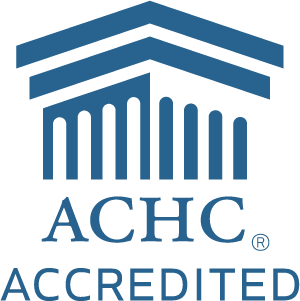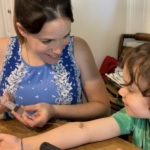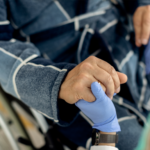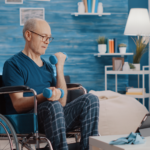Summer camp can be an exciting and fun-filled experience every child looks forward to and a great opportunity to have fun, make new friends, and learn new skills.
For parents of children with bleeding disorders and hemophilia, it can also be a catalyst for uncertainty and anxiety.
Despite the initial apprehensions, many camps cater specifically to children with hemophilia and similar conditions. These provide an environment where your child can have an authentic, rewarding camp experience while staying safe.
What Makes Hemophilia-Focused Summer Camps Different?
These special camps are fully equipped to handle the specific needs of a child living with a bleeding disorder like hemophilia. The staff is trained to understand the unique challenges associated with the condition and how to handle any potential emergencies. Medical professionals, often specializing in hematology, are available on-site 24/7.
While safety is a top priority, these camps also offer a unique opportunity for kids to learn about their condition in a non-medical, supportive environment. They offer children the chance to foster independence, learn self-infusion techniques, understand their physical limits, and share experiences with peers who face similar challenges. All these activities are conducted while still enjoying traditional camp activities like canoeing, arts and crafts, or roasting marshmallows by the fire.
Choosing the Right Camp
When choosing a summer camp for your child, it’s important to consider their specific needs. This can be even more important for children with hemophilia or other bleeding disorders. Consider some of the following factors when choosing a camp.
Medical Facilities
Choose a camp that has a well-equipped medical facility with staff trained in hemophilia care. Ensure that the camp has an on-site hematologist or a hematologist on call.
Hemophilia Care
The camp should have experience in caring for children with hemophilia. Check if the camp has a plan in place for managing bleeding episodes and if they have access to clotting factors.
Activities
Choose a camp that offers activities your child is interested in and can participate in without risking their health.
Location
Consider the camp’s location and how far it is from your home. If the camp is far away, ensure a hospital nearby can provide hemophilia care.
Contact your local bleeding disorder organization or HTC for recommendations or referrals to find a summer camp near you.
- Visit the websites of the National Hemophilia Foundation (NHF) or the Hemophilia Federation of America (HFA) for a list of bleeding disorder camps by state or region.
- Search online for keywords such as “bleeding disorders summer camp” or “hemophilia summer camp” along with your state or region.
Getting Ready for Summer Camp
Sending your child off to camp can be an emotional journey, but there are steps you can take to prepare both yourself and your child for this exciting new experience.
Open Communication
Start by having open conversations about what camp will be like. Address any fears your child might have. Reassure them that while it might be challenging initially, the camp is a safe place designed especially for kids like them.
Do Your Research
Look into the specifics of the camp. Check their protocol for managing emergencies, the qualifications of the staff, and the routine medical care provided. It also helps to talk to parents whose children have attended the camp previously.
Prepare a Camp Kit
Apart from packing the usual summer camp essentials, prepare a personalized hemophilia care kit. This could include a bleeding diary, factor supplies, specific medications your child takes, and emergency contact information.
Communicate with the Camp
Ensure you communicate your child’s specific needs to the camp organizers. This could include their type of hemophilia, inhibitors, allergic reactions, or other related health issues.
Coping Strategies
Talk to your child about missing home and help them develop coping strategies, such as writing letters home, involving themselves in new activities, or talking to a trusted adult or new friend.
It’s also natural for you to feel anxious about the separation. Take comfort in the fact that you’re providing your child with a unique, empowering experience. Stay connected with the camp organizers and other parents for support.
The impact of a summer camp on your child goes beyond the immediate experience. They offer lifelong skills and friendships, increased independence and self-confidence, and an invaluable feeling of normalcy. As daunting as it might seem initially, these camps can be a wonderful way for children with hemophilia to grow, learn, and, most importantly, have fun.
Remember, you’re not alone on this journey. The hemophilia community is strong, full of supportive, understanding individuals who know exactly what you’re going through. With some preparation, the right information, and a dash of courage, your child can have the amazing, enriching experience of a lifetime at summer camp.
Sending your brave little camper off is a courageous act of love, proving that hemophilia doesn’t have to limit the joy and adventure in your child’s life.
If you have any questions or concerns, please contact us today.
Personalized Care,
Professional Excellence
Improving Your Quality of Life Is Our Mission













